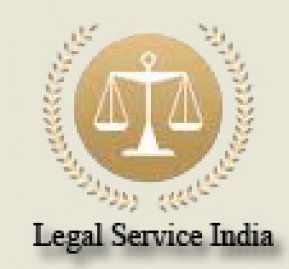In 1929 Parliament perceived the need to qualify the child destruction. statute by a provision for preserving the life of the mother, but crassly failed to add a similar exception to the abortion section In 1861 (when t GAP A was passed as a consolidating measure) medical science was r sufficiently advanced to make it safe to terminate pregnancy, so this P makes no exception for therapeutic (health) abortions.
With increasing skill it became medical practice to perform the operation on urgent medical grounds, and the legality of this was established dramatic circumstances in Bourne
An eminent gynecologist aborted a girl of 14 who was pregnant as the result of multiple rape. He justified his action on health grounds, and was acquitted after a favourable direction by Macnaghten J. The judge rested his direction on the presence in the statute of the word "unlawfully," which he took to signify that some terminations of pregnancy were lawful. In itself this was not a strong ground, but he also referred to the choice of values or choice of evils that is generally known as the doctrine of necessity. He said: "The unborn child in the womb must not be destroyed unless the destruction of that child is for the purpose of preserving the yet more precious life of the mother"
To expand this point: the woman is a developed human being, sensitive to pain and anxiety. She is established in the affections of her family, and upon her the welfare of other children and of a husband may depend. It is far more important to consider her life and health than that of an early fetus, representing only a child-to be which has not yet been fully formed, cannot feel pain, cannot live outside the womb, and has not entered the human community.
Bourne's acquittal did not at once produce a large increase in medical abortions. The attitude of the medical profession in general was hostile, and tragic cases continued to occur. A girl of 12, pregnant by her father, was refused an abortion. Special boarding schools were opened for expectant mothers aged from 12 upwards, in order that they might continue with their lessons while looking after their babies. Women Who had been raped, women deserted by their husbands, and overburdened mothers living in poverty with large families, also failed to get a medical abortion. One "liberal" hospital in London and one in Newcastle performed the operation comparatively freely, and abortions could be readily bought in Harley Street; but in general the mass of women could only go to a "back-street abortionist," wielding a knitting needle, syringe or stick of slippery elm, or to a skilled operator acting illegally for large fees. Some unwilling mothers-to-be used dangerous methods on themselves, or occasionally committed suicide. Although illegal abortions ran into thousands each year, convictions were comparatively few (less than a hundred a year), largely because women which had sought the help of an abortionist were unwilling to give him away, but partly also because the police themselves tended not to look upon abortion as a real crime. The only people who were effectively deterred by the law were the doctors, who alone could operate safely The problem was common to all Christian countries that started with an unqualified prohibition of abortion.
At the same time as these evils were beginning to be acknowledged, the opinion arose that a woman had the right to control her own fertility. But against the pro-abortionists was arrayed a powerful religious lobby basing itself upon the "sanctity of life."
The Abortion Act 1967 was a compromise measure which did no concede all the demands of the libertarians and feminists but substantially liberalized the law. In England and Scotland it supersedes the case-Iaw" including Bourne. Section 1:
"(1) Subject to the provisions of this section, a person shall not be guilty of an offence under the law relating to abortion when ( pregnancy is terminated18 by a registered medical practitioner]':.' if two registered medical practitioners are of the opinion, formed in good faith--
(a) that the continuance of the pregnancy would involve risk to the. life of the pregnant woman, or of injury to the physical 0 mental health of the pregnant woman or any existing children of her family, greater than if the pregnancy were terminated;
(b) that there is a substantial risk that if the child were born . would suffer from such physical or mental abnormalities as t be seriously handicapped.
(2) In determining whether the continuance of a pregnancy would involve such risk of injury to health as is mentioned in paragraph (l of subsection (1) of this section, account may be taken of the pregnant woman's actual or reasonably foreseeable environment.
(3) Except as provided by subsection (4) of this section, are treatment for the termination of pregnancy must be carried out if' hospital vested in the Minister of Health or the Secretary of State under the National Health Service Acts, or in a place for the tin being approved for the purposes of this section by the said Minister
the Secretary of State..
.
(4) Subsection (3) of this section, and so much of subsection (1) relates to the opinion of two registered medical practitioners, shall n apply to the termination of a pregnancy by a registered medical practitioner in a case where he is of the opinion, formed in good fail that the termination is immediately necessary to save the life or prevent grave permanent injury to the physical or mental health of t pregnant woman."


